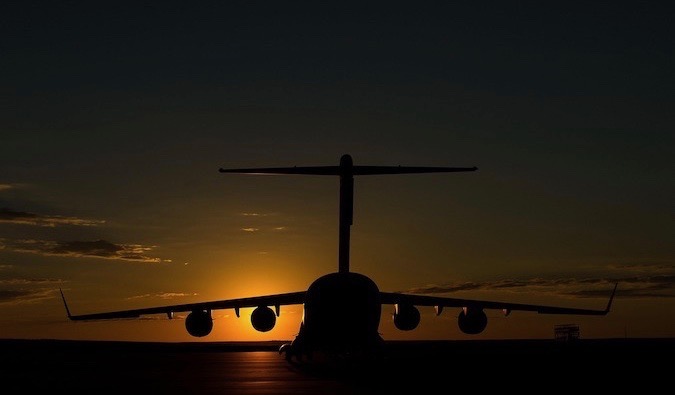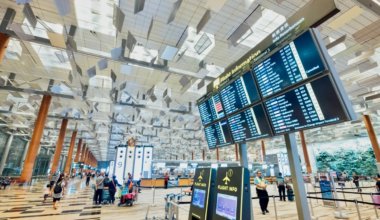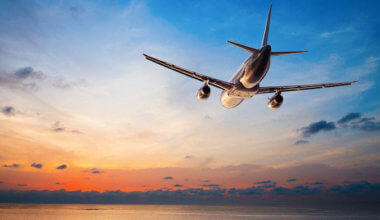
Last Updated: 12/06/19 | December 6th, 2019
A few months ago, I was speaking with a representative of Singapore Airlines. Naturally, we ended up talking about the public perception of airfare costs. Everyone is always looking for the cheapest flight. And while there are ways to get cheaper airfare, the age of rock-bottom prices is simply over.
I’ve been traveling for over a decade. In that time, I’ve noticed all kinds of trends in the industry — including how prices change.
Maybe you’ve noticed it too. Ticket prices, even the cheapest ones, seem to only be going up . Save some flash sale or price war, consumers are paying a lot more than they used to. Sure, there are still lots of budget airlines in Europe and other regions that offer cheap flights. But as a whole, the industry is changing.
That conversation inspired me to sit down and write this post. Since ticket pricing is a complicated and arcane subject, I want to take some time to explain why your airline ticket costs so goddamn much, as well as share a few tips on how to still get cheap airfare.
Why Have Prices Increased?
Ticket prices are high today for a number of reasons. For starters, the industry has consolidated a lot over the last few years. Less competition means less need for cheaper prices. Thanks to bankruptcies and mergers, there are now only a handful of major airlines in the United States
In Canada — the second-largest country in the world — there are only three (Air Canada, Air Transat, and Westjet).
In Europe, KLM and Air France are now one company. Lufthansa has its hands in many smaller airlines (such as Austrian Airlines and Eurowings). While budget airlines keep prices cheap within Europe, once you leave the continent, those 10 EUR tickets disappear!
As airlines have partnered up, merged, or gone bankrupt, the incentive to create low fares to win your business has mostly disappeared.
Secondly, the price of airline fuel has increased tremendously. Back in 1996, airline fuel cost $0.55 per gallon. Now, it’s $1.95 per gallon. Airlines can’t absorb all of that increase, so they pass some of that on to the consumer, leading to higher fares.
Additionally, airline taxes and security fees have increased, adding a lot to your base fare. Currently, the following fees are added to the cost of your ticket:
- September 11 Security Fee of $2.50 (up to a maximum of $10 per round trip)
- Passenger Facility Charge of $4.50 per segment (up to a maximum of $18 per round trip)
- US Federal Domestic Segment Fee of $3.70 per segment
- US Travel Facilities Tax of $8.20 per direction (only applicable to flights to/from Alaska and Hawaii and the 48 contiguous US states or between Alaska and Hawaii)
- US Immigration User Fee of $7
- US Customs User Fee of $5.50
- US APHIS User Fee of $5
- US International Transportation Tax of $16.30 per arrival or departure
- Foreign government security/tourism/airport/international transportation taxes and fees of up to $290 (vary widely by destination and fluctuate with exchange rates)
That’s a hell of a lot of fees! And it’s not just the United States. Ever fly into London? Half the ticket price is made up of fees and taxes!
Moreover, following 9/11 and the recession, demand fell, and to compensate, airlines reduced both the number of routes they offered and the frequency of their flights. They did this to save money and fly fuller planes. Fuller planes mean more passenger revenue and fewer costs for the airline.
It’s why if you live far from a major city, you’ve seen fares go up and the number of flights go down. Planes fly close to full now, and airlines are quite happy about that.
With fewer planes, less competition, and higher capacity, airlines can charge a lot more for tickets. There’s nothing to stop them, and they don’t need to lower prices. United CEO Jeff Smisek said that only now are airfares priced appropriately. When you have a CEO say something like that, it means prices aren’t going down anymore — only up.
According to Rick Seaney of Farecompare.com, “Before 2008, things were in the favor of the passengers. After the 2009 crisis, the scale of justice tipped towards the airlines.”
Why Do Prices Fluctuate?
Prices go up and down for many reasons. No one can really predict when or if a price will change. Only the airline knows that. But there are four things that drive prices: competition, supply, demand, and oil prices. The first and last items are the ones that really affect prices the most.
Together, those four things all affect a lovely thing called the load factor. Airlines want to fill their planes and maximize profits, and they do this by calculating a plane’s load factor. Essentially, this is the percentage of seats sold on a flight. They want this number to be as high as possible.
Airlines tend to manage their load factor by constantly changing the price of tickets to fill the plane and get maximum revenue. On a US domestic flight, there might be 10–15 different price points, according to Rick Seaney.
If the load factor is low and demand is low, an airline will increase the availability of cheap fares. If the load factor is high and demand is high, the airline will raise prices.
In the airline industry, there are two types of passengers: business travelers and leisure passengers. Business travelers are flexible on price (the boss is paying) but not on dates. Leisure travelers aren’t flexible on price (the cheaper, the better) but are on dates.
Airlines are constantly trying to strike a balance between these two types so they can make a profit. Why fly a plane full of cheap fares when you can get people to pay more?
Airlines know that a certain number of people will book far in advance if they can find a decent price. Airlines also know that they need to hold a certain number of seats for business travelers who will book last-minute and pay more. Ticket prices jump up and down based on the demand for seats from these two types of passengers.
As Scott Mayerowitz, airline reporter for the Associated Press, says,
To maximize their profit, airlines developed sophisticated computer systems that constantly compare booking trends to past sales history. If tickets are selling faster than in the past, the price rises. If a competitor raises fares, the airline will probably raise theirs too.”
How Do You Get Cheap Fares?
I remember the days when I got excited over $500 fares to Europe. Now, with prices typically around $1,000, I get excited over $750 round-trip fares. (“Yay!” I say sarcastically.)
It’s not impossible to find a cheap ticket. There are many, many ways to find cheap airfare, and while I go into incredible detail in this other post, here are some basic pointers:
To avoid being the person who paid the most for their ticket, you need to be flexible. As I said, airlines are constantly changing prices and trying to balance leisure and business travelers; they’ll do their best to avoid having customers pay the lowest price point.
“About three months before, airlines start to manage those bottom price points,” Rick says. That means airlines begin to look at historical trends and current seat sales to figure out whether they will release those really rock-bottom fares or keep prices high.
If you’re booking inside a month, you’re playing into the airline’s hand. As Rick pointed out to me, most tickets are sold within 30 days of departure. Booking that late is a bad idea. At that point, airlines know they have you. When your dates are no longer flexible, you’ll pay whatever they charge.
To quote Scott again:
The days of routinely flying from New York to San Francisco for $99 each way are long gone. That said, there are occasional fare wars when airlines like Virgin America or Spirit enter a new market. Airlines will also still deeply discount flights when traffic is low, such as winter flights to Europe. The catch is: travelers need to be flexible about when they fly. ITA Software’s airfare search provides a calendar of the lowest fares on given routes. It’s a great way to find the best fares if you have some flexibility.”
While there are many other tricks to reduce the cost of your ticket, the main two are flexibility and flying when demand is low. That means flying mid-week, taking early-morning or late-night flights, and avoiding flying on Monday, Friday, or Sunday.
The days of cheap airfares are long over. They aren’t coming back, and the prices you see now are the new normal for airline tickets. They are simply going to cost a lot more, especially if you don’t find the sweet spot when prices are their lowest. But by understanding how tickets are priced, you can avoid being the person who paid the most.
Now that you know why flights are expensive, learn how you can get cheaper flights than the person sitting next to you:
- 10 Ways to Get Cheap Flights
- How to Use Airline Credit Cards for Free Flights
- How I Search for Airline Tickets
Book Your Trip: Logistical Tips and Tricks
Book Your Flight
Find a cheap flight by using Skyscanner. It’s my favorite search engine because it searches websites and airlines around the globe so you always know no stone is being left unturned.
Book Your Accommodation
You can book your hostel with Hostelworld. If you want to stay somewhere other than a hostel, use Booking.com as it consistently returns the cheapest rates for guesthouses and hotels.
Don’t Forget Travel Insurance
Travel insurance will protect you against illness, injury, theft, and cancellations. It’s comprehensive protection in case anything goes wrong. I never go on a trip without it as I’ve had to use it many times in the past. My favorite companies that offer the best service and value are:
- SafetyWing (best for everyone)
- Insure My Trip (for those 70 and over)
- Medjet (for additional evacuation coverage)
Want to Travel for Free?
Travel credit cards allow you to earn points that can be redeemed for free flights and accommodation — all without any extra spending. Check out my guide to picking the right card and my current favorites to get started and see the latest best deals.
Need Help Finding Activities for Your Trip?
Get Your Guide is a huge online marketplace where you can find cool walking tours, fun excursions, skip-the-line tickets, private guides, and more.
Ready to Book Your Trip?
Check out my resource page for the best companies to use when you travel. I list all the ones I use when I travel. They are the best in class and you can’t go wrong using them on your trip.


